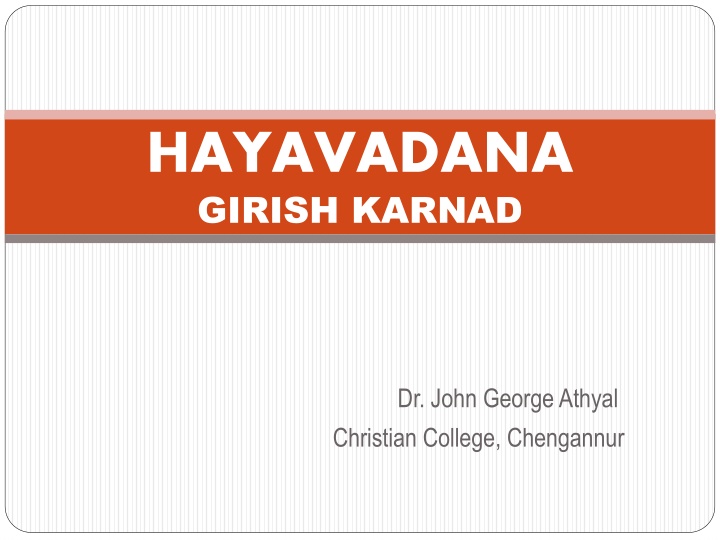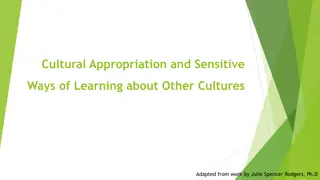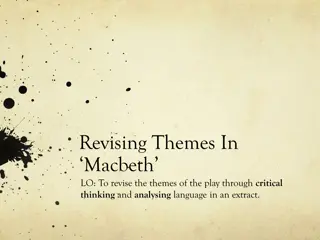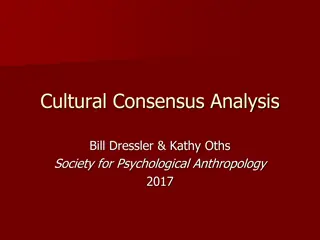Analysis of "Hayavadana" by Girish Karnad: Themes and Cultural Implications
Girish Karnad's play "Hayavadana" explores themes of identity, quest for perfection, and existentialism through a mythical narrative intertwined with cultural implications. The play delves into the ambiguity of human life, the supremacy of the head, and the search for completeness, drawing inspiration from mythology and folklore. Karnad's portrayal of characters from different castes reflects societal norms and beliefs prevalent in Indian culture.
Download Presentation

Please find below an Image/Link to download the presentation.
The content on the website is provided AS IS for your information and personal use only. It may not be sold, licensed, or shared on other websites without obtaining consent from the author.If you encounter any issues during the download, it is possible that the publisher has removed the file from their server.
You are allowed to download the files provided on this website for personal or commercial use, subject to the condition that they are used lawfully. All files are the property of their respective owners.
The content on the website is provided AS IS for your information and personal use only. It may not be sold, licensed, or shared on other websites without obtaining consent from the author.
E N D
Presentation Transcript
HAYAVADANA GIRISH KARNAD Dr. John George Athyal Christian College, Chengannur
Influences Thomas Mann s The Transposed Heads Kathasaritasagara
Quest for perfection main plot and sub plot - both the stories are similar both Hayavadana and Padmini search for completeness fundamental ambiguity of human life
Mythical Base The story provides mythical base The character of Hayavadana is mythical about a horse-Gandharva The story of Padimini - Goddess Kali appears - she makes the dead mean live again. Such incidents are found only in myths
Supremacy of head pivotal issue of the play issue is highlighted in the main theme heads of Devadatta and Kapila are transferred - both of them face identity crisis solution -head is supreme
Hayavadana spokesperson of the Dramatist wants perfection faces the problem of existence suffers the indifference of god and goddesses his story gets mixed with the main story
cultural implications Culture defines society and Karnad s plays are a reflection of the culture in our society takes inspiration from mythology and folklore a man's search for his own self among a web of complex relationships Devadatta is stereotypical of a male Brahmin whereas Kapila, a Kshatriya Here the caste of the men plays a major role in the portrayal of both the men, which is true of our Indian society where we judge people on the basis of their caste and creed.
Existentialism quest of the individual for the assertion of the self despite his limitations and failures Identity Impersonation motif of incompleteness - a broken tusk and a cracked belly
Techniques Techniques Masks Dolls Bhagavada, chorus Humour Expressionist techniques Indianised expressions and Symbolism Influence Yakshagana Brecht























